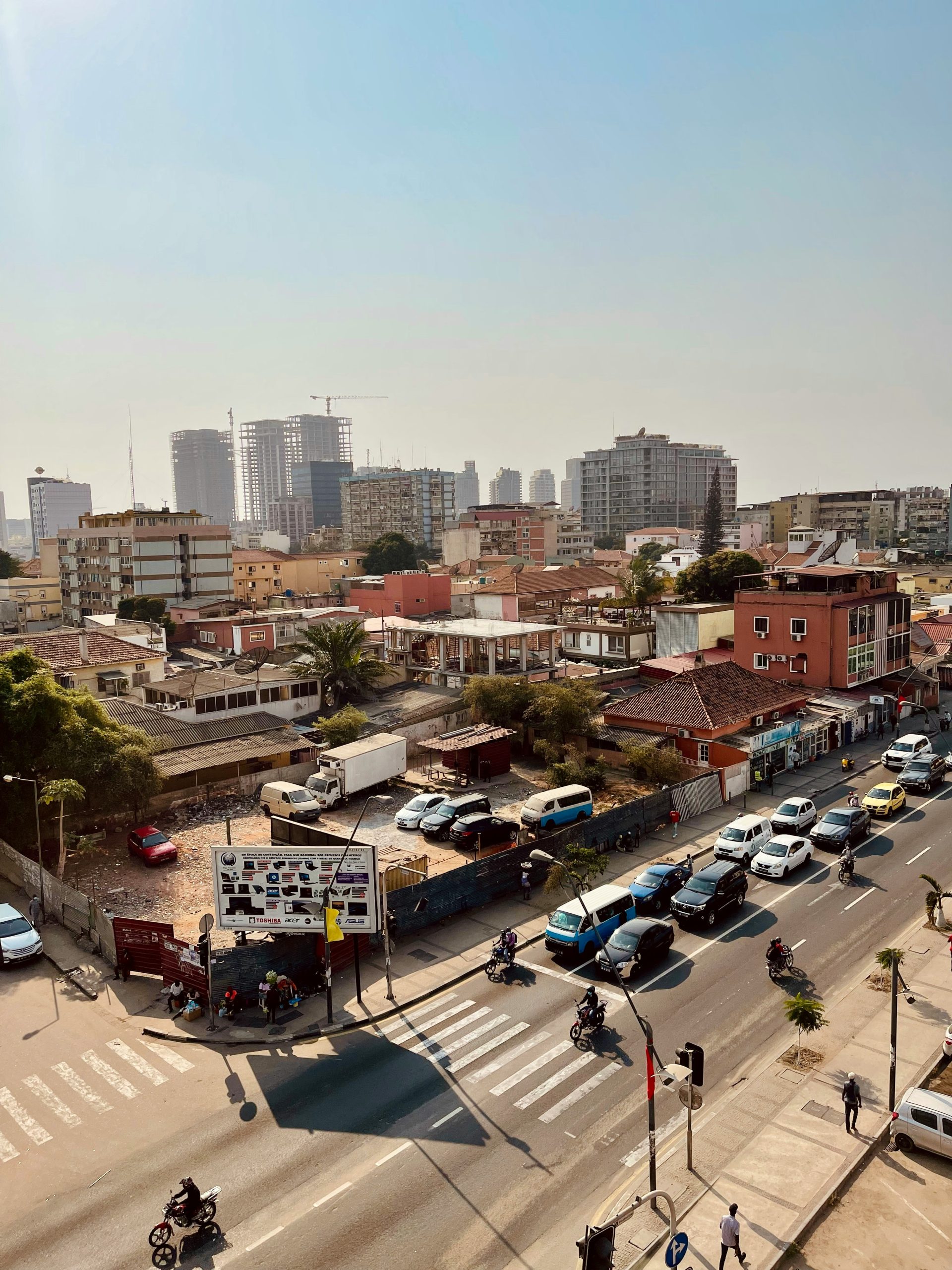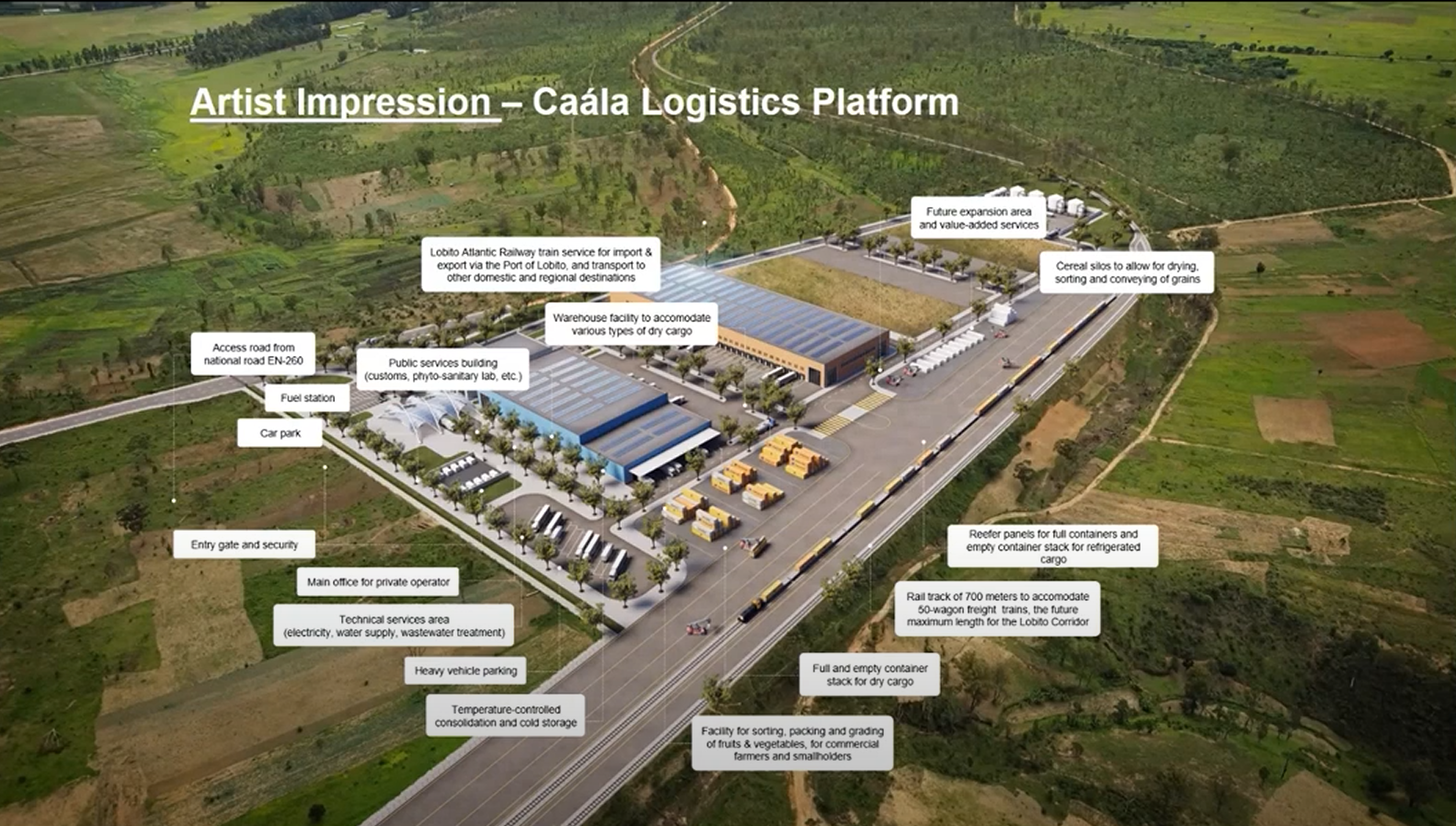Angola’s Business Climate: Agriculture, Logistics, and Finance at a Turning Point
Angola is at a decisive moment. Once synonymous with oil dependency, the country is steadily reorienting its economy toward agriculture, logistics, and renewable energy. For businesses willing to engage early, this transformation offers both opportunity and challenge.

As Núria Vlonk-Cunha Soares, Managing Director of the NABC, put it during the webinar, Exploring Angola’s Agri Potential: “Angola at the moment is undergoing major transformation…aiming to diversify its economy, strengthen food security, and reduce its dependence on imports. That, at the same time, offers great chances for Dutch businesses.”
Agriculture and Food Security: The Core Driver
Agriculture is central to Angola’s diversification agenda. The country holds 35 million hectares of arable land, yet less than 15% is currently cultivated. The government’s grain and livestock programmes aim to boost domestic food supply and reduce reliance on costly imports.
The poultry sector highlights both the scale of the challenge and the size of the opportunity. Paulo Galante, Administrator of Fazenda Avicola Avinova, explained: “Altogether with the other 11 biggest producers in the country we have a capacity of 20’000 to 30’000 tons of chicken meat annually. But this only represents 10% of the annual demand. Angola still imports around 300,000 tons each year.”
High feed costs, driven by dependence on imported corn and soy, keep domestic production below capacity. To address this, producers and government are working to integrate 66,000 smallholder families into local grain production. For international agribusiness companies, the opening is clear: investment in feed production, genetics, and cold-chain systems could rapidly improve efficiency.
Horticulture tells a more optimistic story. Chris Masters, an agri-entrepreneur developing avocado farms in the Angolan highlands, described conditions as unparalleled: “According to one of the world’s top avocado experts, Angola’s highlands, with their altitude, climate, space, and water, are avocado dreamland. No other country has all four conditions at this level.”
With a harvest window between October and February, precisely when Europe faces a supply gap, Angola could soon position itself as a premium avocado exporter. Farmers are already working toward international certifications, while projects like the emerging Highlands Avocado Cluster integrate smallholders to ensure broad-based benefits.
Logistics as the Enabler
Unlocking Angola’s agricultural potential depends on moving goods efficiently from farm to market. That is where logistics becomes central.
Valdano Candido of ARCCLA, the regulatory agency for logistics, explained the vision: “The Kaala Logistics Platform is an agro-logistic facility being implemented as a pilot to strengthen infrastructures, boost local production, and promote exports in non-oil sectors.”
The platform is strategically positioned along the Lobito Corridor, a rail and road artery linking Angola to the Democratic Republic of Congo and Zambia. Erik van de Kamp of Flying Swans, co-developer of the project, stressed its catalytic role: “We see Angola’s Lobito Corridor as a game-changer. The Kaala platform will provide warehousing, cold storage, and packing facilities – making avocados, bananas, and other crops competitive on international markets.”
By pairing fertile land with functioning corridors, Angola can finally translate production into trade.
Finance and Investment Climate
Reforms in recent years have improved Angola’s business environment. The government introduced a one-stop investment gateway, broadened tax incentives, and waived visa requirements for nearly 100 countries.
Bruno Baptista of AIPEX, Angola’s investment promotion agency, noted that foreign investors can now negotiate tax benefits under a contractual regime if their projects exceed USD 10 million and create at least 50 jobs. These reforms aim to make investment faster and more transparent.
Yet finance remains a stumbling block. Corné de Louw of Rabobank Partnerships urged investors to plan ahead: “Banks in Angola have extremely long lead times. If you want to invest, involve banks early and consider blended finance solutions with international partners.”
Challenges and Mindset
No discussion of Angola’s business climate would be complete without acknowledging challenges. Exchange rate volatility, high logistics costs, and governance concerns persist.
But as logistics entrepreneur Alwin Das, Director of FAMS Group, who has lived in Angola for more than 20 years, reminded participants: “If you go to Angola, you need a long-term vision. There will be challenges, but solutions are designed for problems. With the right mindset, Angola is one of the most rewarding places to build.”
A Timely Moment for Engagement

What emerged from the discussion was a shared conviction that Angola has all the ingredients – land, water, people, and location – to become a regional agricultural powerhouse.
As Ambassador Salvador Jesus concluded: “The growing demand for poultry, the vast potential of our arable lands and water, and the determination to reduce reliance on imports are clear signals of Angola’s ambition to transform its agriculture sector into a driver of inclusive and sustainable development.”
The upcoming Agricultural Trade Mission to Angola (6th-10th of October) offers a chance to turn that ambition into partnerships, investments, and tangible growth. For businesses with vision, Angola’s transformation is not a distant prospect, it is already underway.
The Agricultural Trade Mission to Angola is organised by the NABC, together with the Consulate General of Angola in the Kingdom of the Netherlands, and with the support of the Ministry of External Relations of Angola and the Agency for Private Investment and Promotion of Exports of Angola (AIPEX). Companies interested can express their interest by the 14th of September by clicking here.


